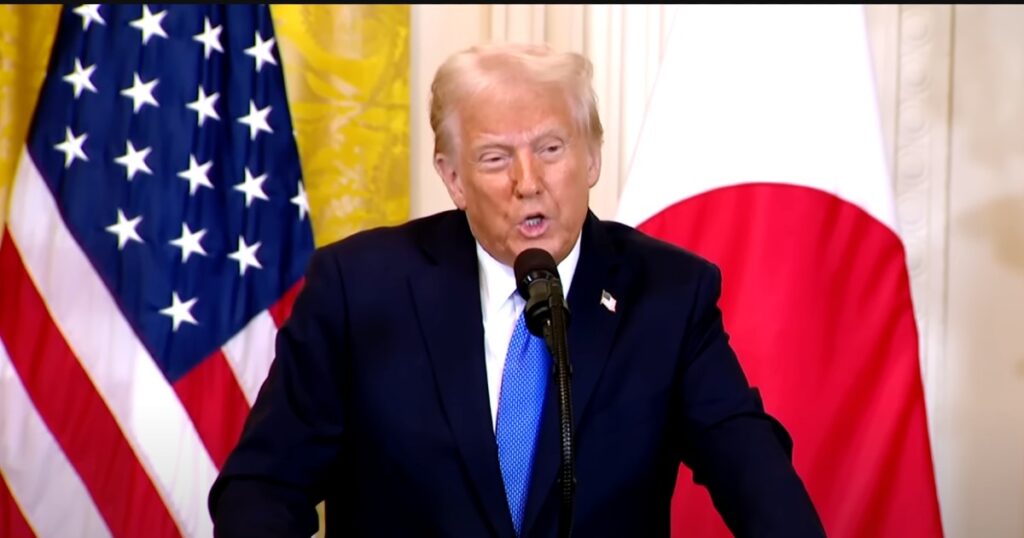President Donald Trump has brought the idea to the creation of a US sovereign wealth fund. This is a large, government-controlled pool of capital that invests in private companies, invests in the market, and, theoretically, provides future revenues to the country. On the surface, it sounds like a bold way to secure America’s future wealth. After all, some countries run sovereign wealth funds (SWFs) that accumulate wealth for their citizens.
But what could work in a smaller, more homogeneous, and financially disciplined country would be disastrous in America. The US sovereign wealth fund represents one of the most dangerous expansions of government power in modern history, almost certainly falling into a costly practice of political support, inefficiency and chronism.
1. Government overreach on steroids
The US government is already the world’s largest economic force. It collects trillions of dollars each year, redistributes, regulates almost every industry, and owns a vast amount of land and infrastructure.
Sovereign wealth funds take this one step further. Washington is not only a regulator and tax collector, but also a direct owner of private companies. When the government acquires stock interests, the line between the private and public sector disappears. America will move from a market-driven economy to something similar to state capitalism, where all business decisions are politicized.
2. There is no functional government future guarantee
Unlike Norway and Singapore, the US has no history of political consensus on financial restraints or long-term savings. With US national debt already exceeding $35 trillion, the qualification program is facing bankruptcy, and every election cycle is fundamentally changing the priorities of tax and spending.

Does anyone believe that the $1 trillion sovereignty fund will remain isolated from partisan war? Within a few years, it could have been funded short-term political promises and used as collateral for more deficit spending, or sucked into politically fashionable causes. There is no guarantee that future governments will protect the integrity of the fund.
3. “Who knows” economy
In theory, sovereign wealth funds invest in the interests of all citizens. In reality, funds will become magnets of chronism, especially in countries that have been politically fractured, like the United States.
Lobbyists attack Washington to pilot their investments. The senators request funding for a project in their hometown. The president will lead billions of dollars to industry on their agenda. Success in business shifts from serving customers to ensuring government favor. This “who knows the economy” will cripple innovation and reward political access rather than merit.
4. Market inefficiency: Losers are seeking help
Markets thrive with creative destruction. Winners will innovate, losers will decline and reposition them for higher capital applications. Sovereign funds undermine this process by creating permanent lifelines for underperforming businesses.
A struggling industry will lobby for relief, claiming that employment and “national interests” are at risk. Politicians rarely say no. Instead of capital flowing efficiently, it is trapped in a politically protected sinkhole, giving birth to mediocrity and punishing excellence.
5. Use it for $3 trillion
The Sovereign Fund proposal envisages the allocation of up to $3 trillion to government capital. However, take into consideration opportunity costs. The same $3 trillion can be used to reduce national debt, strengthen social security, and fund meaningful tax easing for working families and small businesses.
History shows that government spending often replaces politics with performance. A recent example is an idea that Jamal Bowman, an ally of MP Alexandria Ocasio-Cortez, uses tax money to open a “free grocery store.” The intention may sound noble, but it distorts incentives, creates dependencies, and undermines private companies.
In contrast, in contrast to a market-driven approach, instead of building government-run groceries, they cut taxes on private grocery stores, entrepreneurs and distributors. Let the market decide who will flourish. When private capital competes, innovation and efficiency emerge. When the government decides the outcome, the outcome is waste and mediocrity.
If America really has $3 trillion to allocate $3 trillion, it would be far wise to empower citizens and entrepreneurs than to concentrate it on politically captured funds.
Comparative Perspective: Why is the US different?
Countries that operate the funds of sovereign wealth typically do so under their own terms. They have resource-driven surplus, political consensus, or relatively small disciplined groups. There are none of all three in the US.
Unlike these countries, the US does not have a resource-driven surplus to invest. It runs a chronic deficit, relies on debt financing, and faces a fierce partisan battle over any budget. The sovereign wealth fund here is not a disciplined savings vehicle. It would be a political slash fund.
Conclusion: Stick to the market, not the ministries
The United States has thrived through free markets, private companies and individual initiatives. It’s not through central planning. The Sovereign Wealth Fund will fundamentally change its DNA and replace market discipline with government ownership and political support.
At a moment when Washington is already struggling to manage qualifications, infrastructure and debt, the last thing America needs is a trillion-dollar political investment fund.
The path to true wealth creation is to strengthen private capital rather than building a government portfolio. It reduces barriers, simplifies taxes, and encourages innovation. That’s the American way, and I’ve been working for nearly 250 years.




